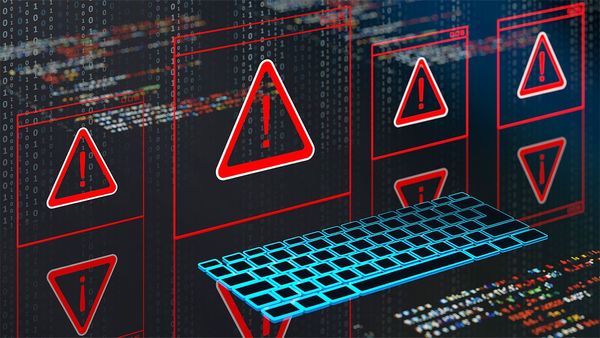Taking Social Security early is about as unpopular with financial advisors as is trying to time the market. It's easy to see why — but there are still times claiming early makes sense.
The main argument against starting benefits before full retirement age is to avoid a reduction in benefits. For example, if you take Social Security at age 62 — the earliest you can turn on benefits — it reduces your monthly check by around 30%.
Full retirement age for Americans born in 1960 or later is 67. So, a worker who takes Social Security five years early is taking a big pay cut. The longer one delays benefits, the bigger the benefit check will be. What's more, workers who wait till age 70 before claiming Social Security get the equivalent of a raise. From full retirement age of 67 until age 70, benefits increase 8% a year.
While nobody likes to get less, there are scenarios in which it could make sense to take benefits as early as 62. That's because every person's situation is a little bit different, says Ash Ahluwalia, head of Social Security planning at OneTeam Financial.
"Everybody's looking for a cookie-cutter solution," said Ahluwalia. "And the reality is, it's a customized solution. You can't just apply a standard claiming strategy to everybody. There are legitimate reasons to take Social Security early."
Sometimes taking Social Security early is all about the numbers. Other times it's simply a choice to use the money as retirees see fit as they transition to their post-work life. Here's when it makes sense to take Social Security early.
You Need The Money
If cash flow is low and bills are high, and there is no other income available to pay the bills, then take Social Security early to help make ends meet, says Ahluwalia. "If you need the money, take it," said Ahluwalia.
Keep in mind that Social Security also allows you to turn off benefits after you've turned them on. Say you lose your job at age 62 and land a new one a few months later.
If you change your mind about receiving benefits, you may be able to withdraw your Social Security claim if it has been less than 12 months since you were first entitled to benefits, according to the Social Security Administration. To withdraw your claim, however, you must meet all of the requirements, including making the request in writing and repaying the benefits that you received.
In short, if you withdraw your claim, you may reapply at a future date.
You're In Failing Health
Another key consideration is your health. Evaluating your longevity is part of the equation. A shorter life expectancy is a reason to take benefits earlier rather than later.
If you're in failing health and don't think you'll live long or past age 78 or 82, take benefits early so you can maximize your benefits while you're still alive. Why? It's all about the break-even point. For most people, the estimated break-even point, or when the value of Social Security benefits taken at an older age exceeds the dollar amount of earlier claims, is in the 78 to 82 range.
"If you don't think you're going to live until, say, 75 or 80 years old, yeah, grab it now," said Chuck Czajka, CEO of Macro Money Concepts.
By claiming early, you can get as many checks as you can.
The thinking is that even if your earned income is more than the $23,400 annual limit, and your benefit gets reduced by $1 for every $2 you earn above that threshold, it's still better to get $1 than zero dollars.
It Results In Larger Spousal Benefit Later
To optimize Social Security, you must consider not just yourself, but your spouse as well, says Ahluwalia.
Coordinating benefits is one way to optimize benefits. Sometimes, for example, it makes sense for the lower-earning spouse to take benefits at age 62 and for the higher earner to wait until full retirement age. That way the lower earner can start receiving checks and eventually switch over to the higher spousal benefit.
Let's say the higher-earning spouse will receive a benefit of $4,000 a month at full retirement age and the lower earner's benefit will be $1,000. Remember, the lower-earning spouse is entitled to a spousal benefit, too, which is half of what their higher-earning spouse will earn at full retirement age.
Since the lower earning will eventually get a spousal benefit of $2,000 when the higher-earning spouse starts taking benefits at full retirement age, there's an incentive to lock in $1,000 per month until the spousal benefit kicks in years later.
"Why delay the start of (the lower earner's) own benefit?" said Ahluwalia. "It makes more sense to start (that spouse's) portion early and get the higher spousal benefit later. So again, you have to look at each spousal benefit relative to each other."
A Market Swoon Makes 401(k) Withdrawals Less Attractive
With the bulk of retirees' wealth sitting in workplace retirement accounts with large weightings of stocks, a down market can make withdrawals less attractive. "If the market is down 20% or 30% and you need to tap your 401(k) for income, that's the worst time to take money out," said Ahluwalia.
Why suffer the double whammy of selling into a declining stock market with asset prices depressed, and needing to sell more shares to raise income. Taking Social Security during a prolonged market decline is an option to consider, says Ahluwalia.
"You may want to start your Social Security early and draw on that for a while until the market recovers and your account balance recovers," said Ahluwalia. When the market recovers, you can resume tapping your retirement account for income purposes.
You Want To Enjoy The Go-Go Years Of Retirement
If enjoying the early years of retirement, or the so-called go-go years, is important to you, then it could make sense to take Social Security early to fund your lifestyle, says Ahluwalia.
"Honestly, some people want to take Social Security early because they want to spend their money and enjoy it while they're healthy," said Ahluwalia.
When doing retirement income planning, Ahluwalia says he and clients take into consideration the three phases of retirement: the go-go years, the slow-go years, and the no-go years. The go-go years, of course, are early in retirement when new retirees are on the go and spend more money. The no-go years are later in life when most people become more sedentary and stay home more and spend less.
"Some people want their money in the go-go years," said Ahluwalia. "They want to go on cruises and travel to see the grandkids. So, sometimes drawing Social Security early to finance that is desirable to them. They don't want to wait. They need some extra money, so they do it. And they're OK with it, because they think they're going to spend less money later in retirement in the no-go years. So, they say, let's enjoy it while we can."
Use Benefits To Fund Life Insurance Policy
Many people delay Social Security so they can leave a larger survivor benefit for their spouse. So, another strategic use of Social Security for folks who take it early is to use the proceeds from benefit checks to finance the purchase of an insurance policy that will make up for the lower benefit and still provide adequate financial support for their spouse when they die, says Ahluwalia.
Taking a 30% benefit cut early in retirement but using the money to buy, say, a $500,000 life insurance policy that a spouse can draw on later is worth the trade-off for many people.
Again, following conventional wisdom and delaying Social Security as long as possible to maximize the size of the benefit isn't always the way to go.
That said, if you plan on taking Social Security early at age 62, be aware that you're likely locking in a long period of smaller benefit checks, says Czajka.
Still, when to take Social Security is ultimately a personal decision that must factor in a number of variables, such as income needs, longevity and lifestyle, says Phillip Battin, president and CEO of Ambassador Wealth Management.
Health, of course, is the biggest wild card.
"You really have to address what quality of life looks like (later in life)," said Battin. "Because at the end of the day, as you know, many people postpone their Social Security to optimize their income. But here's the bad news: What if you don't have a full life?"
When you're gone, you can no longer personally use the checks. "Life is a portfolio of memories," said Battin. "And we should be making as many deposits as possible."







